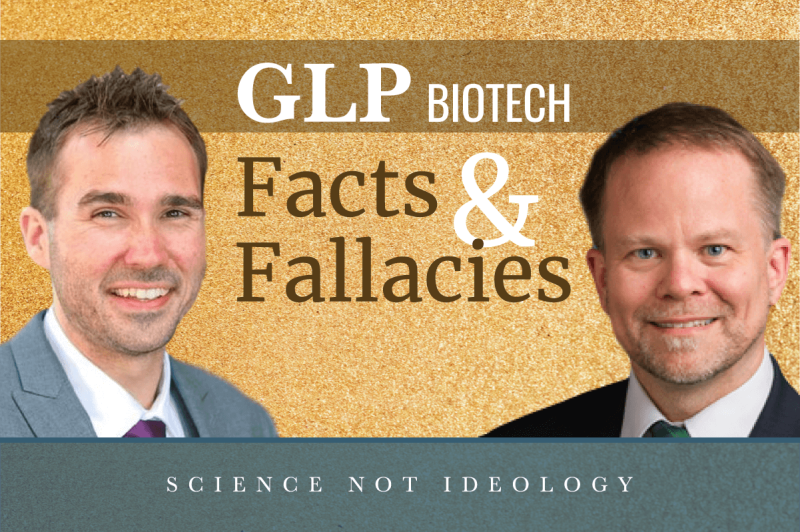Podcast: Play in new window | Download
Subscribe: RSS
Join geneticist Kevin Folta and GLP contributor Cameron English on episode 197 of Science Facts and Fallacies as they break down these latest news stories:
The death of a family pet is a brutal experience for most of us. If you’ve ever wished that you could hit the reset button and give your dog, cat or even your prized bull a second chance—and you have anywhere from $50,000 to $500,000 laying around—there are companies that will harvest your pet’s cells and use them to produce a clone of your fury family member. The problem? With just a 20 percent success rate, the process is hardly foolproof. And even if it works, Lassie 2.0 may not behave as you expect. It’s a stark reminder that genetics doesn’t dictate personality—even in our pets.
Drought-tolerant biotech crops exist. Varieties of corn, wheat and soy have been developed and farmers around the world grow them every year. Why, then, do anti-GMO groups persist in claiming that biotechnology can’t produce plants with drought tolerance? They’re either unaware of the evidence or they just deny it. Neither option paints a flattering picture of these activist groups.
Antibiotic-resistant bacteria infect thousands of people every year. Public health officials, scientists and physicians are keenly aware of how serious this problem is, so why haven’t we developed a new antibiotic in close to four decades? It comes down to money. New drugs carry hefty price tags—typically north of $1 billion. How do we spur the necessary investments to get new antibiotics on the market?
Kevin M. Folta is a professor, keynote speaker and podcast host. Follow Professor Folta on Twitter @kevinfolta
Cameron J. English is the director of bio-sciences at the American Council on Science and Health. Visit his website and follow ACSH on Twitter @ACSHorg































